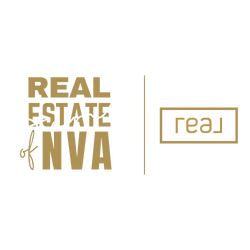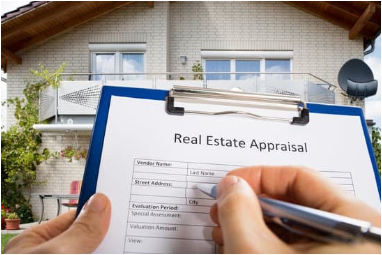Home appraisals can often vary, leading to confusion for buyers, sellers, and Realtors alike. Several key factors contribute to these discrepancies, and it’s important to understand why appraisals may result in different valuations.
Here are the top 5 reasons for home appraisal discrepancies:
1. Timing and Market Conditions
The timing of an appraisal is critical. Appraisals have a limited shelf life, especially in a fluctuating market. Changes in the economy, real estate trends, or unexpected events like natural disasters can render an appraisal outdated in just a few months. The effective date of the appraisal may also differ from the inspection date, especially in cases like estate appraisals where the value is assessed at the date of death, which can be months or even years prior.
2. Purpose and Definition of Value
Appraisals can serve different purposes, and the value definition can vary based on the intended use. For example, an appraisal meant for insurance purposes focuses on the replacement cost of improvements rather than the market value. Similarly, other types of valuations, such as retrospective or liquidation values, are distinct from current market value. Understanding the appraisal’s intended use is crucial to interpreting its findings.
3. Highest and Best Use of the Property
Appraisers determine the “highest and best use” of a property, which can influence its valuation. This means identifying the use that is physically possible, legally permissible, and financially feasible. A property’s current use may not always align with its most profitable or suitable use, which can create different interpretations of value.
4. Appraisal Methodology
Even when two appraisals have the same intended use and date, differences can arise due to how comparable sales are selected and adjusted. Factors like proximity, market conditions, and the appraiser’s judgment on the importance of certain features (e.g., extra bathrooms or acreage) can lead to different conclusions. Appraisers make adjustments to comparable properties based on perceived market reactions, but small differences in these adjustments can result in varying final values.
5. Reconciling Differences
When disparities occur, a review appraiser will examine factors like comparable sales selection, adjustments, and how the final value is reconciled. This involves assessing whether adjustments were consistent and reasonable based on market data, and whether the appraised value falls within the range of adjusted comparable sales prices.
In some cases, lenders may request a Reconsideration of Value (ROV) if they believe there are errors or bias in an appraisal. New regulations provide guidance on how lenders can handle ROV requests, ensuring fairness and accuracy in the appraisal process.
By understanding the detailed nature of the home appraisal process and considering factors like timing, purpose, and methodology, you can gain clarity on why two appraisals may provide different values for the same property. The answer often lies within the appraisal reports themselves.
Recommendations for Approaching the Appraisal Process with a Realtor
Successfully navigating the home appraisal process is critical to ensuring that a real estate transaction moves smoothly from offer to closing. By taking a proactive and strategic approach to pricing, offers, and real estate negotiation strategies, you can significantly reduce the risk of a deal falling through due to appraisal discrepancies.
Here are 5 key recommendations you should expect from your Realtor:
1. Set Realistic Pricing Based on Comparable Sales
Start by conducting a thorough Comparative Market Analysis (CMA) to establish a realistic asking price for the property. Use recent, comparable sales (within the last 3-6 months) that closely match the subject property in size, location, and condition. This aligns the listing price with current market value and sets expectations for both buyers and sellers.
When reviewing comparable properties, consider the adjustments an appraiser will make for differences like additional bedrooms, acreage, or property condition. Avoid inflating the asking price, as doing so increases the likelihood of an appraisal coming in below the contract price, which can lead to a breakdown in negotiations.
2. Anticipate and Discuss Appraisal Issues Early
Before listing a property, discuss the potential outcomes of an appraisal with your client. Explain how appraisals are conducted and what factors may affect the valuation. If the seller’s desired price exceeds current market trends, consider preparing them for the home appraisal impact on contract price and the possibility of an appraisal below the contract price. Develop a contingency plan on how to handle a low appraisal and negotiation strategies.
If the property has unique features that may not be reflected in comparable sales, provide the appraiser with supporting data such as recent upgrades, renovations, or energy-efficient additions. This can help justify the asking price during the home appraisal process.
3. Present a Strong Offer That Accounts for Appraisal Risks
When representing a buyer, submit a competitive offer that considers both the property’s market value and the potential for home appraisal variances. If the market is competitive, ensure the buyer understands the risks associated with offering above the listing price, particularly if the offer is higher than comparable sales in the area.
To mitigate the risk of an appraisal gap, consider adding contingencies or clauses that protect the buyer, such as an appraisal contingency that allows for renegotiation if the appraised value comes in lower than the contract price. Alternatively, sellers may offer to cover part of the appraisal gap to keep the transaction moving forward.
4. Negotiate Based on Appraisal Findings
If the home appraisal comes in below the agreed-upon contract price, approach negotiations with clear strategies:
Renegotiate the Sale Price: In many cases, the seller may agree to lower the sale price to the appraised value to avoid the contract falling through.
Negotiate the Premium from the Appraisal Value: Another option is for both the buyer and seller to contribute toward closing the appraisal gap. The buyer may increase their down payment, and the seller may reduce the price, ensuring the deal progresses.
Request a Reconsideration of Value (ROV): If there are grounds to believe that the appraisal contains errors or overlooks significant factors, work with the lender to submit a formal ROV request. Provide additional evidence, such as more relevant comparables or details about recent upgrades, to support a higher valuation.
5. Maintain Open Communication Throughout the Process
Keeping open lines of communication between all parties—buyer, seller, lender, and appraiser—is essential. By maintaining transparency and providing relevant information upfront, you can avoid surprises during the appraisal phase.
Realtors should also ensure that buyers and sellers fully understand the appraisal process and the role it plays in determining the final sale price. Providing guidance and preparing your clients for potential outcomes helps manage expectations and prevents deals from falling apart due to misunderstandings.
Bottom Line
This is why strategically pricing properties, anticipating potential appraisal challenges, and negotiating proactively based on the results, is so important. Realtors can reduce the risk of contracts falling through by taking a slightly conservative approach, let the market decide upon the competitiveness of the home and push the price. This approach not only ensures smoother transactions but also builds trust with clients by demonstrating expertise and foresight.
Buyers must also make sure the Realtors are proactively preparing and meeting with the home appraisers to present the basis of their pricing strategy, while being respectful to the home appraiser. Proactively presenting information creates far better in roads with the home appraiser up front instead of having to take a defensive stance to navigating home appraisals and avoiding low appraisals.
As always . . .
Be sure to check out the:
- Home Valuation Tool
- Reach out for your personalized Home Value Report
- Calculate your future mortgage
Don’t forget the Home Buying and Selling Guides !
Never miss an issue by subscribing below and I look forward to speaking with you soon about your free Home Preparation and Market Analysis consultation!




